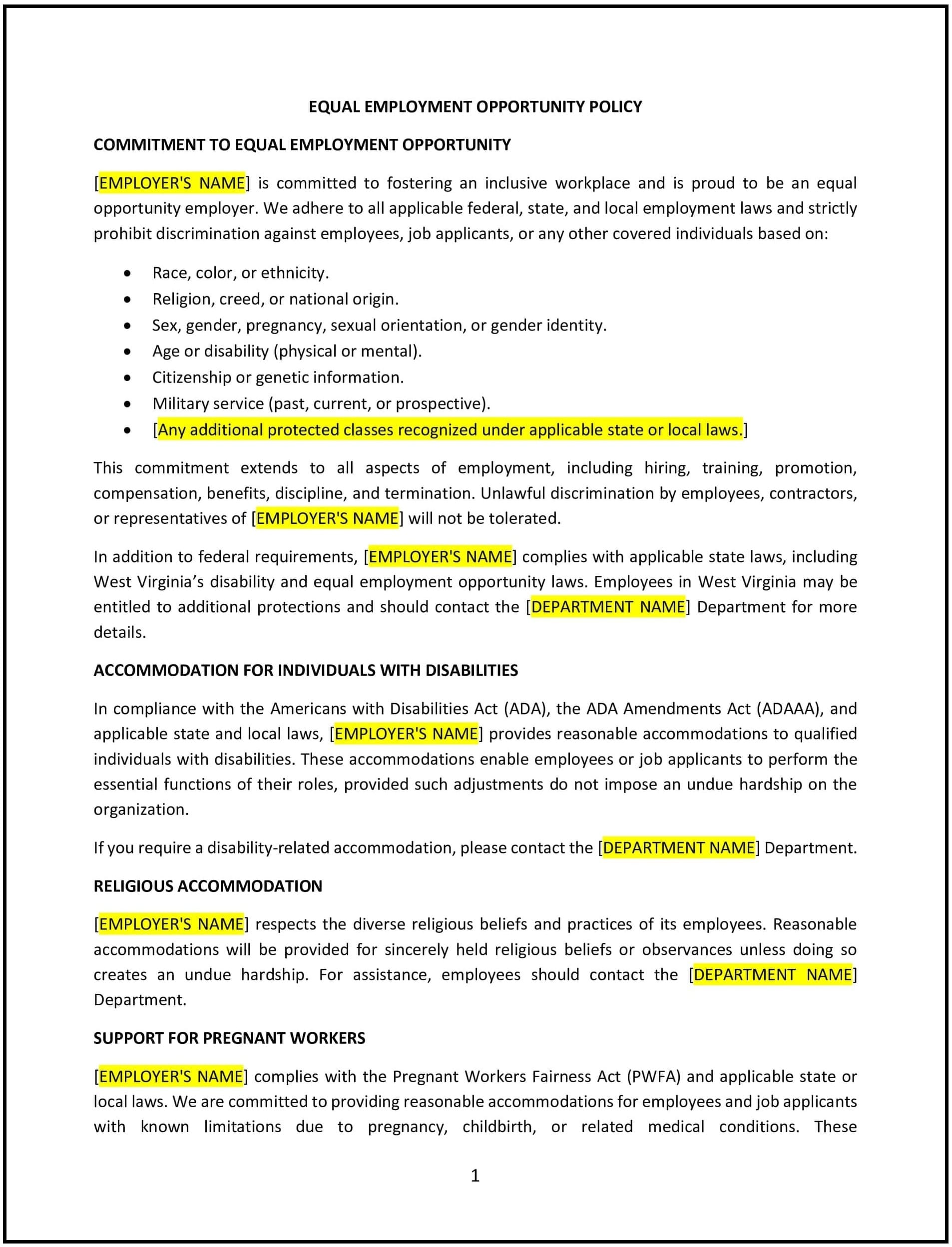Equal employment opportunity policy (West Virginia): Free template
Got contracts to review? While you're here for policies, let Cobrief make contract review effortless—start your free review now.

Customize this template for free
Equal employment opportunity policy (West Virginia)
In West Virginia, an equal employment opportunity (EEO) policy outlines the organization’s commitment to creating a workplace free from discrimination and harassment. This policy ensures that all employment decisions are based on qualifications and merit, without regard to protected characteristics such as race, gender, age, or disability.
The policy defines prohibited behaviors, establishes reporting procedures, and supports compliance with state and federal laws, such as the West Virginia Human Rights Act and Title VII of the Civil Rights Act.
How to use this equal employment opportunity policy (West Virginia)
- Define EEO principles: Clearly state the organization’s commitment to equal opportunity in hiring, promotions, compensation, and other employment decisions.
- Outline prohibited behaviors: Specify types of discrimination and harassment that are not tolerated, such as bias based on race, gender, religion, age, or disability.
- Establish reporting procedures: Provide employees with clear steps for reporting discrimination or harassment, including designated contacts and confidentiality protocols.
- Address corrective actions: Explain the process for investigating complaints and the potential consequences for violations, such as disciplinary measures.
- Support compliance: Align the policy with West Virginia state laws and federal regulations to ensure legal adherence and promote a fair workplace.
Benefits of using an equal employment opportunity policy (West Virginia)
- Promotes fairness: Ensures all employees and applicants are treated equitably based on qualifications and performance.
- Supports compliance: Helps businesses adhere to the West Virginia Human Rights Act, Title VII, and other applicable laws, reducing legal risks.
- Enhances workplace culture: Fosters an inclusive and respectful environment that values diversity and equity.
- Encourages accountability: Sets clear expectations for behavior and provides a framework for addressing violations.
- Improves reputation: Demonstrates the organization’s commitment to ethical practices and employee well-being.
Tips for using an equal employment opportunity policy (West Virginia)
- Communicate the policy: Share the policy with all employees during onboarding and ensure it is readily accessible for reference.
- Provide training: Offer regular training sessions on EEO principles, diversity, and workplace inclusivity for employees and managers.
- Monitor workplace culture: Regularly assess workplace dynamics to identify and address any potential issues of bias or discrimination.
- Document complaints: Maintain detailed records of reported incidents and the steps taken to resolve them to ensure transparency and accountability.
- Review regularly: Update the policy to reflect changes in West Virginia laws, federal regulations, or workplace practices.